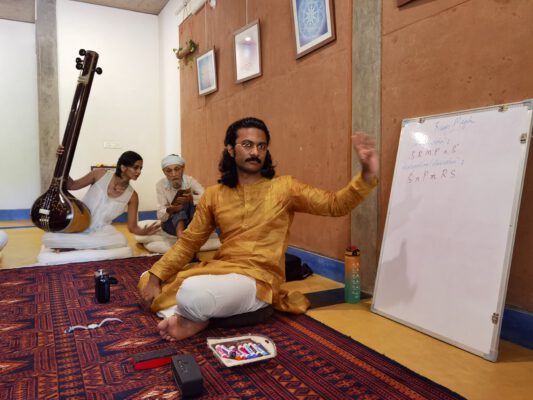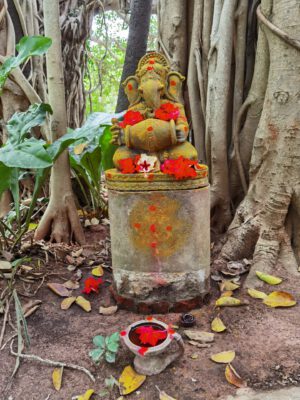Nhe other day I listened to a podcast on the subject of dreams and was once again very surprised. The head of the sleep laboratory in Mannheim says that anyone can train themselves to remember dreams. At least I can, so that's true. But what really surprises me is the reduction of dreams to the subconscious. Dreams would only use stronger images to draw our attention to working on something that we neglect in our waking consciousness. It's a pity and sad, and at the same time indicative of how pathetic this idea is.
I'm thinking about this again today because I was reading the Upanishads again. The short Mandukya Upanishad speaks of four states of consciousness: Vaishvanara (the outward-turned senses), Taijasa (the inward-turned senses in the sense of contemplation or daydream or dream) Prajna (deep sleep i.e. unconscious oneness) and Turiya (the superconscious state, infinite peace, boundless love). I was so impressed that I initially had to sleep the whole day.
Sleeping
I've often told the people I've spent loving nights with that sleeping is consciousness research for me. I don't think anyone really took me seriously. And I didn't take myself as seriously as I should have either. I always had to think of Marcel Proust's 'Search for Lost Time'. The first chapter in Swann's world describes waking up and consciously staying in this in-between world of waking up. This world is a very special place for Proust, and it has stayed with me ever since. I didn't read more than the first 4-5 pages, because it seemed to me that everything had been said. I then devoted the second half of my studies to the philosophy of consciousness. I only understood a lot of things when I was asleep.
In the Upanishads, sleep is a meaningful access to the world, to the self of the world, in which we are not separate. Immortality is the state of deep meditation. Mastering dreams brings us closer to the Self, to Brahman. At the same time, I am now reading Satprem, I find him a bit suspect, but his description of what happens in the different stages of meditation and forms of consciousness speaks to me from the heart. For Satprem and Sri Aurobindo, the core of meditation is to quiet the mind. Only when it is calm and no longer resists Brahman is it possible to allow the organizing power of consciousness. Thinking only interferes with this. This also happens in sleep and in dreams.
I see this as a counter-design to the sleep laboratories that try to instrumentalize dreams for the value creation efficiency machine. Instead, the dream gives us access to a consciousness that far exceeds our small sense of duty.
Sleep is wonderful, it unites us with the self. It is a high form of cognition.
Happy Diwali







